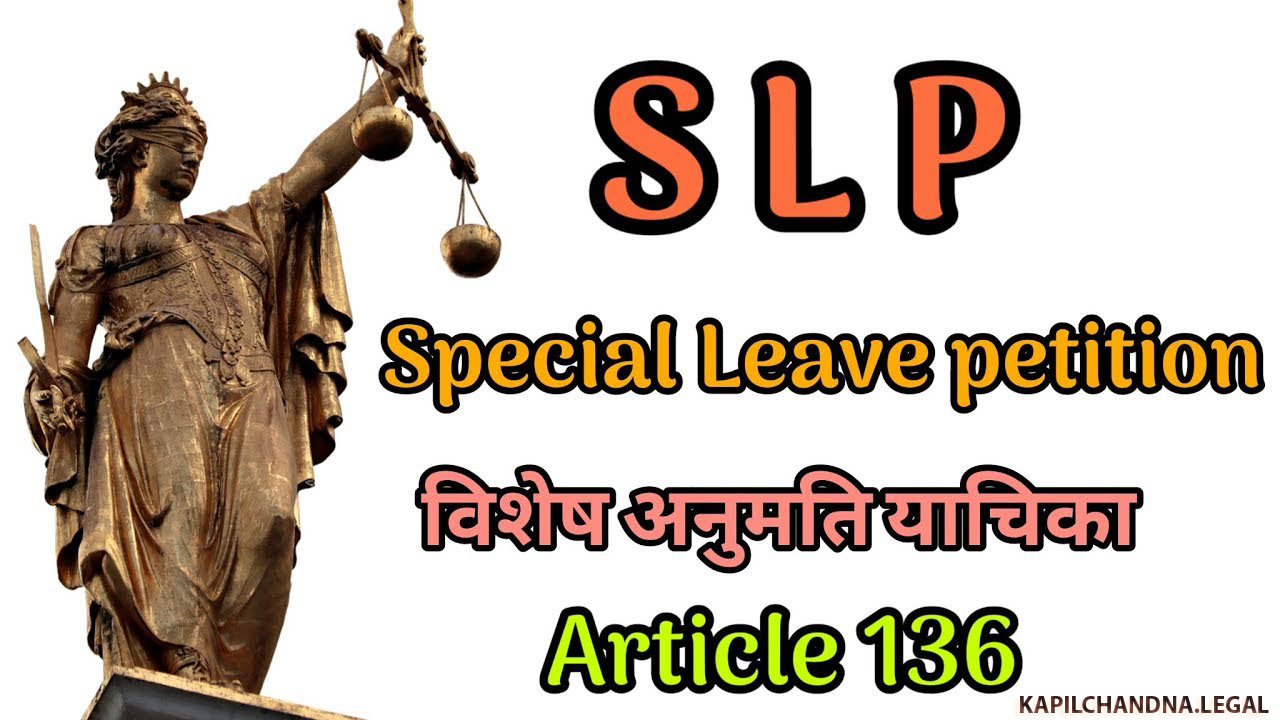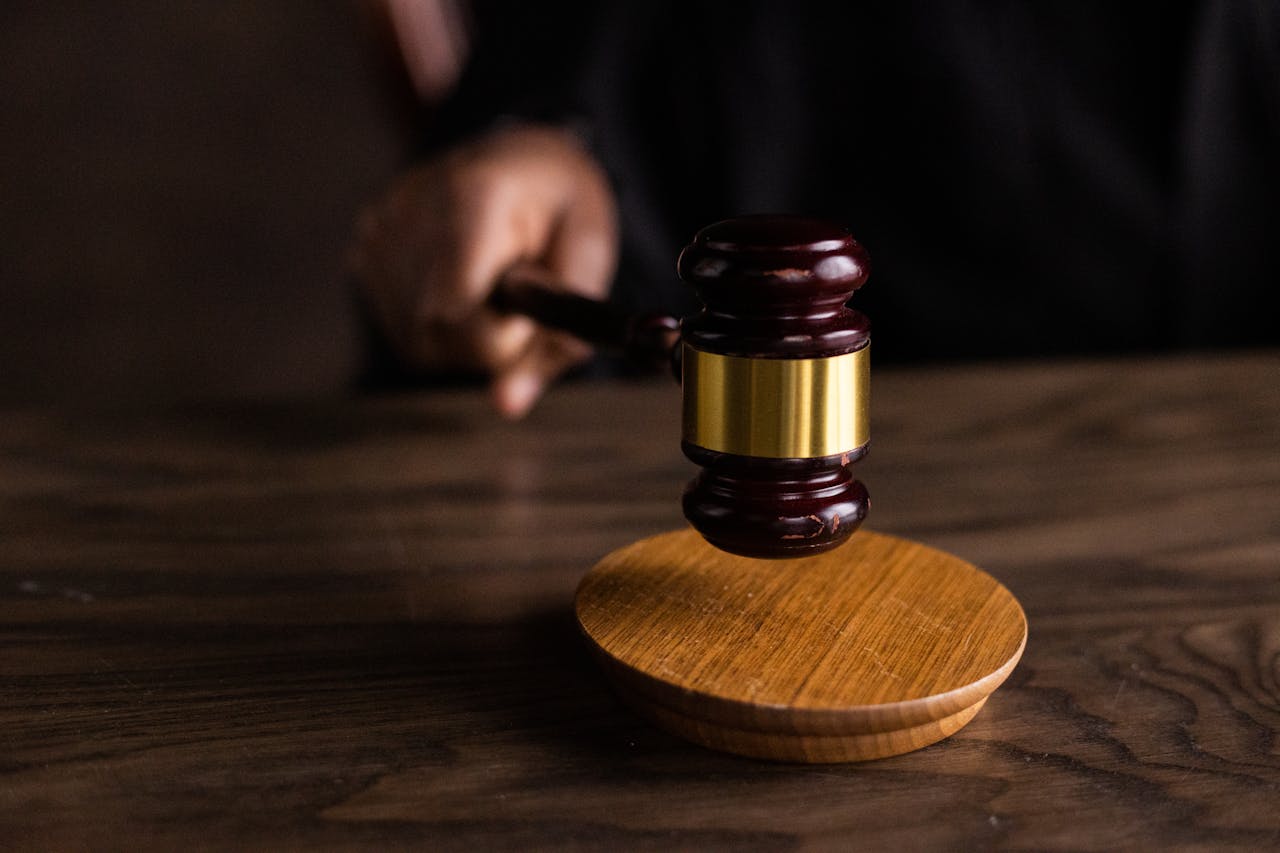How And When To Approach Hon’ble Supreme Court Of India Under Article 136 Of Constitution Of India By Way Of Filing Special Leave Petition
In the common minds, question arises as to How and When to approach Hon’ble Supreme Court under Article 136 of Constitution of India? When any dispute arises b/w parties or when a FIR is about to register or when already registered, or any dispute of civil, commercial, service or any issue which either create/destroy rights or liabilities of any person, has a right to initially approach First Court called as Trial Court, depending upon the circumstances it may be Civil Judge or District Judge or even High Court in case of civil disputes or/and to approach Magistrate Court or District Court or High Court in cases of criminal disputes and when issues/matter are governed by special law, then sometimes, it is possible that special tribunal like CAT, NCLT, Service Tribunal, DRT etc has been constituted by Central Government, which decide & settle rights of parties pertaining to those special disputes.
When the dispute is decided or settled by these aforementioned courts by passing a judgment or order, then aggrieved party i.e. party against whom order or judgment is passed has right to file first appeal before either First Appellate Court i.e. District Court or High Court in their territory in case of civil or criminal nature of disputes, or if, special court is constituted then first appeal goes to appellate courts like DRAT, NCLAT, NCDRC etc.
Finally, when rights or dispute is decided by aforementioned first appellate court except when there is no possibility to challenge the order or judgment passed by First Appellate Court before Second Appellate Court by filing second appeal, then aggrieved party has right to challenge the order or judgment passed by those first appellate court or in case Second Appellate Court to approach and challenge the said order before Hon’ble Supreme Court under Article 136 of Constitution of India by way of filing Special Leave Petition.
Who can file Special Leave Petition? Any aggrieved party can challenge the order i.e. it can be order ad-interim or interim order passed by First Appellate Court (i.e. when there is no possibility to file second appeal before Second Appellate Court), if affecting the rights of parties or if final order is passed by First Appellate Court can be challenged before Hon’ble Supreme Court of India under Article 136 of Constitution of India by way of filing Special Leave Petition.
Now, what is special leave petition and what is so special in it? It is “residual power” in the hands of Supreme Court of India to be exercised only in cases when any substantial question of law is involved or gross injustice has been done. It provides the aggrieved party a special permission which is discretionary in nature to be heard in Apex court in appeal against any judgment or order of any Court/tribunal in the territory of India.
By virtue of this Article, the Court can grant special leave to appeal from any judgment, decree, determination, sentence or order in any cause or matter passed or made by any court or tribunal in the territory of India. Though there is no limit in this Article, but it is permissible and practical to first exhaust the legal remedy before below Courts including High Court and then if being aggrieved, challenge the said order or judgment before Apex Court.
Next question arises as to what are grounds on which order or judgment can be challenged before Hon’ble Supreme Court. Though there is difficult to mention all the circumstances under which challenge can be laid before Apex Court under Article 136 of Constitution of India but nevertheless, it may include (1) Absence of speaking order (2) Error apparent on face of record (3) Violation of Principles of Natural Justice (4) Disregard to forms of legal process (5) Admission of improper evidence (6) Miscarriage of Justice (7) Deprivation of fair trial in criminal cases (8) Finding is based on no evidence (9) Finding is perverse or based on inadmissible evidence (10) Violation of Judicial Precedents.
Another question is what is the permissible time within which it is permissible to approach Apex Court? That Limitation act governs and prescribe the time period within which it is appropriate for any person to approach and challenged the orders before Below Courts as well as Apex Court to file Special Leave Petition under Article 136 of Constitution of India. As per limitation act, SLP can be filed against any order or judgment of High Court within 90 days from the date of judgement or order. However, time spent in getting the certificate copy of impugned order can be excluded in counting the time.
What to say in Special Leave Petition? The petition called SLP is required to state all necessary and relevant facts with brief synopsis and sequence of events and most importantly with question of law and grounds which is required to be decided by Apex Court in that case. The SLP must be clear and concise and it is equivocally important to reply and mention the relevant judgments of Supreme Court on the same issue or if similar issue was decided by Supreme Court in another case, to have better understanding of question of law.




